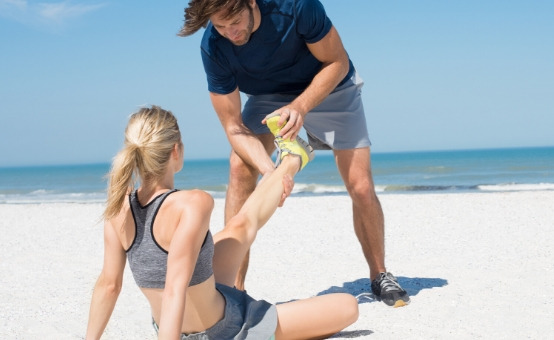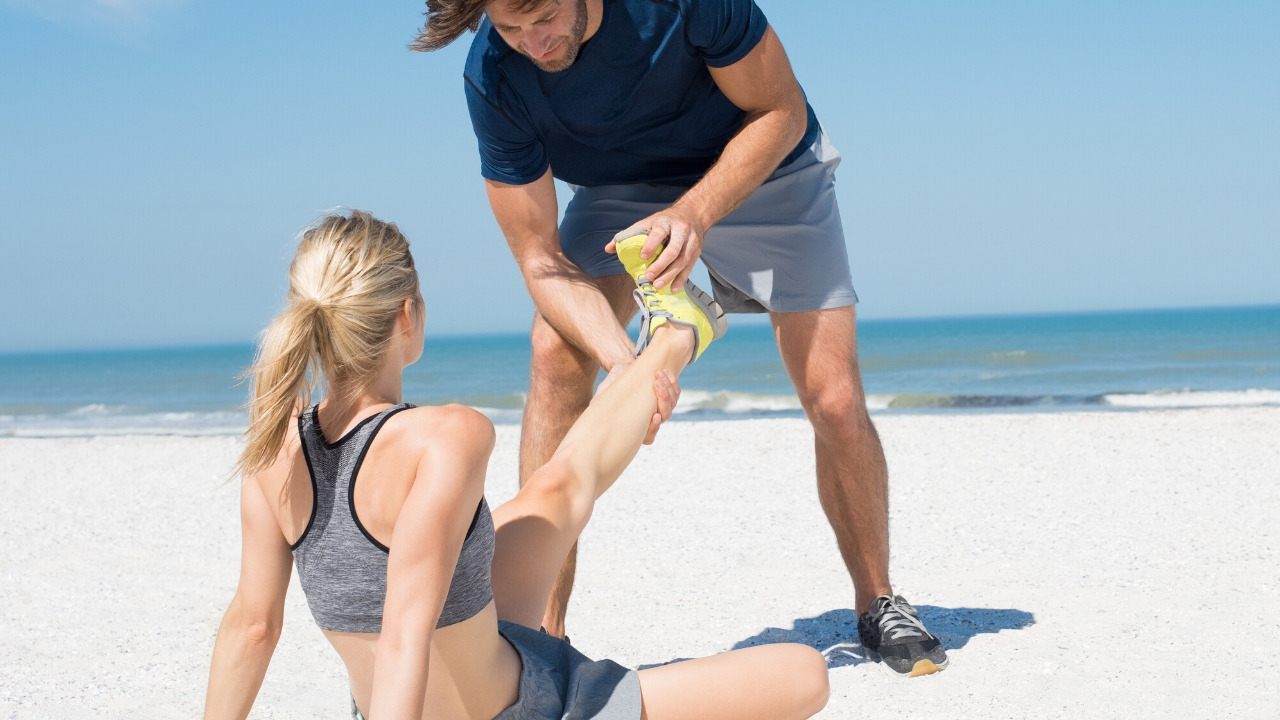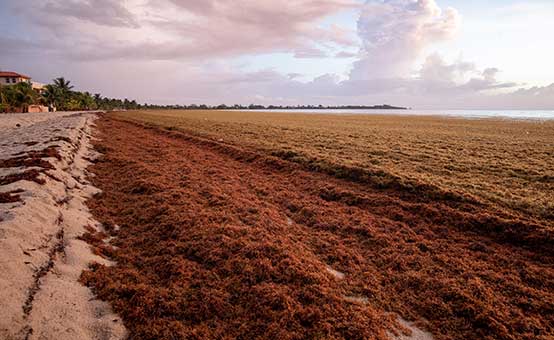

By James Chimiak, MD
TRAVEL HEALTH | Apr 6, 2020
Muscle cramps can be unpleasant, but sometimes they can be debilitating, causing extreme pain and rendering you unable to walk.
Muscle cramps often occur in the leg muscles, most often in the calf, but people can also experience muscle cramps in their abs, arms, hands or feet.
Cramps can last anywhere from just a few seconds to up to 15 minutes, and the sudden, sharp pain from muscle cramps can be so intense that it wakes you up at night. In some cases, people may also feel a bulging lump of muscle tissue beneath the skin or experience swelling after a severe cramp.
Muscle cramps alone are typically harmless and do not require medical attention, but if you experience severe cramping or cramps that do not resolve with stretching, consult your physician.
Learn what might be causing your muscle cramps, and find out how you can get some sweet relief if cramps strike the next time you’re at sea.
A muscle cramp is the sudden, involuntary contraction of one or more muscles. Being dehydrated, overusing a muscle, remaining in the same position for too long or straining a muscle can often bring on muscle cramps. Long periods of exercise or physical labor may also cause them, particularly in hot weather.
Factors that can increase your risk of experiencing muscle cramps include age, certain medications, and pregnancy. People with thyroid, liver or nerve disorders or diabetes may also have an increased risk of experiencing muscle cramps. In some cases, muscle cramps are indicative of underlying medical conditions such as inadequate blood supply to the extremities, nerve compression or a mineral deficiency.
Cramps can often be alleviated by stretching the affected muscle. If you have snorkeling or dive fins on board, one easy way to stretch out a cramp in your calf is to put a fin on, then pull the tip of your fin toward you just like you would in the water.
To soothe your sore muscles, apply a hot or cold compress at the first sign of muscle spasm. Hot cloths, heating pads, cold cloths or ice packs can all effectively alleviate the pain of cramps. If the compresses don’t reduce the pain, over-the-counter anti-inflammatory medications, such as ibuprofen, may also be useful. For severe cases, your doctor may prescribe you a muscle relaxer or treat the underlying cause of your cramps with prescription medication or supplements.
The easiest way to prevent muscle cramps is to avoid exercises that bring on cramps. Additional ways to prevent cramps include stretching and warming up before a workout or strenuous physical activity, waiting to exercise after eating and staying properly hydrated. For those who experience frequent cramps, ask your doctor about stretching exercises you may be able to do to prevent cramps.
About James Chimiak, MD
Dr. Chimiak is the Medical Director at DAN where he oversees the organization's emergency management and medical operations. A former U.S. Navy Special Operations, Surface Warfare and Deep Sea Diver, he is also a triple board-certified physician in hyperbaric medicine, anesthesiology, and chronic pain.
MORE FROM
SAFE PASSAGE

TRAVEL SAFETY | Mar 11, 2020
COVID-19 and Travel: 6 Things to Consider Before Canceling Your Travel Plans

TRAVEL HEALTH | Mar 2, 2020
Sargassum Toxicity: More Than An Eyesore, It Can Also Make You Sick
THIS WEBSITE DOES NOT PROVIDE MEDICAL OR DENTAL ADVICE.
It is intended for general informational purposes only and does not address individual circumstances. It is not a substitute for professional medical or dental advice, diagnosis or treatment and should not be relied on to make decisions about your health. Never ignore professional medical or dental advice in seeking treatment because of something you have read on the DAN Boater website. If you think you may have a medical emergency, immediately call your doctor, dial 911, or contact emergency services nearest you.